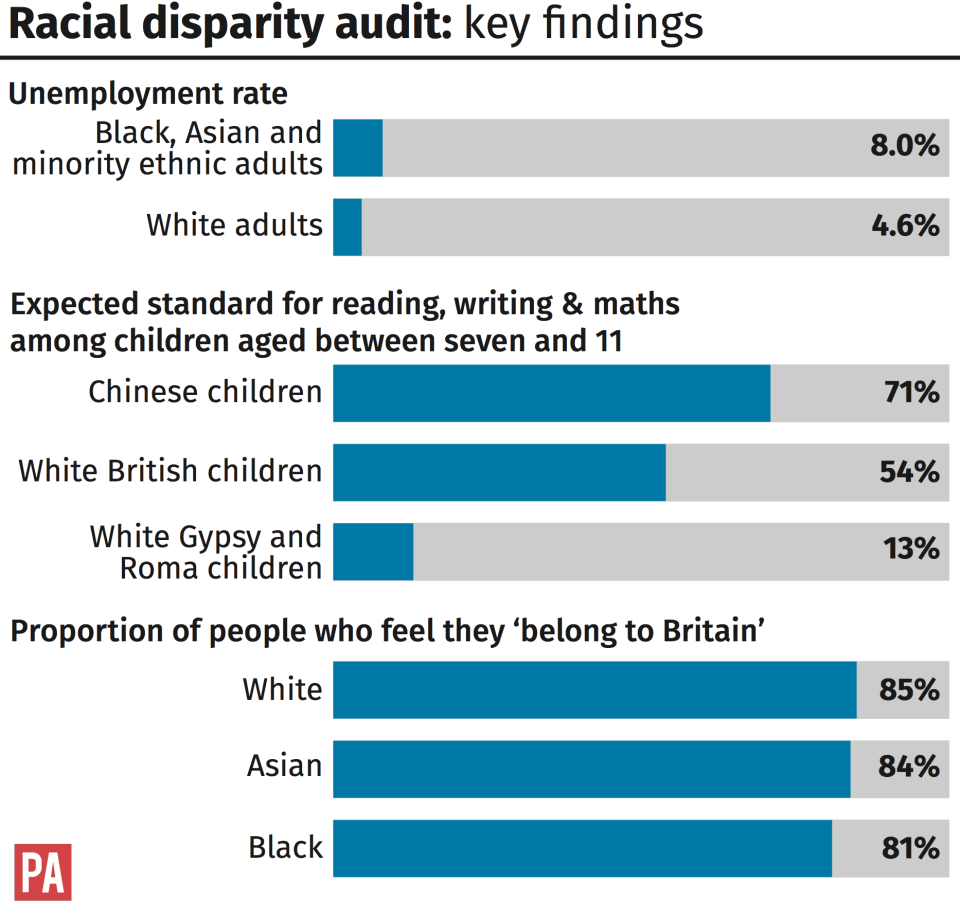Theresa May is 'stoking racial grievances' with race report response

Theresa May has been accused of ‘stoking grievances’ with her response to a new government report into racial inequality.
The Racial Disparity Audit, released today, revealed a number of disparities in attainment between ethnic groups in a number of areas.
But critics of the Prime Minister have accused her of using the data for ‘political point scoring’.
Munira Mirza, the former deputy London Mayor, told the Today Programme: ‘We would argue that there are certainly disparities between ethnic groups.
‘But our concern is the way that the Government has framed these disparities as being about discrimination or racial injustice, implying that there is unfair treatment of ethnic groups when in fact there are many different complex reasons why ethnic groups have different outcomes.’
She further argued that the government is ‘cherry-picking statistics’, saying: ‘If they were just releasing the data then that would be one thing.
‘But they’re framing it in a very particular way and they are cherry picking statistics that imply the worst possible spin on this.
‘And I’m sure that the people involved have good intentions but what they’re doing is they’re stoking grievances.’

Ms Mirza was among a number of signatories who wrote an open letter to The Times newspaper today, criticising the government’s ‘crude and tendentious approach’ to the audit’s findings.
‘We are concerned that the prime minister’s remarks last week about the racial disparities audit presented an overly pessimistic picture of modern Britain.
‘All too often statistics are misused in a way that casts minorities as victims of racism and “white privilege”’, reads the letter.
‘There are disparities: in crime rates, health, employment and education. Historically these differences were exacerbated by racism but it is also true that ethnic minorities tend to be younger, live in urban areas, come from low-income backgrounds and make certain lifestyle choices. In many areas the gap is closing and in some areas ethnic groups outperform.
‘For ministers to use emotive terms such as “racial injustice” without acknowledging the many underlying factors that explain differences may create a false perception of victim status.
‘It also damages ethnic communities’ trust in public services, leading to worse outcomes.’
Ms Mirza said that the government’s response is doing further damage in terms of race relations.
She said: ‘I think whats happening is that the constant talking about institutional racism, racial bias, unfair treatment – these are the words that the Prime Minister herself was using – is stoking grievance.
‘It’s also deterring ethnic minorities from engaging in public services.’

 Yahoo News
Yahoo News 

